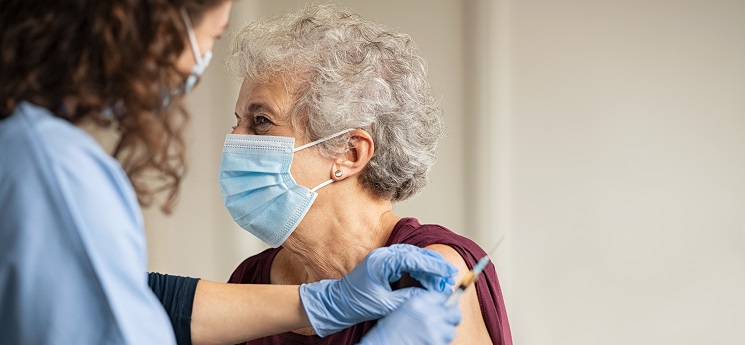Instances of fully vaccinated people contracting COVID-19 are rare but expected, according to medical experts, and should not cause alarm.
Even in cases where that occurs, the risk of infected people passing the virus on to others is greatly reduced, they say. Vaccinated people are also much less likely to develop symptoms such as coughing and sneezing, further reducing the risk of spread.
Vaccines rarely provide 100 per cent immunity and this is a normal and predicted part of how vaccines work, Professor Caroline Miller, director of the Health Policy Centre at the South Australian Health and Medical Research Institute, told the Sydney Morning Herald.
“We shouldn’t be very concerned. The purpose of a vaccine is to prevent serious illness and death from a disease. That’s what all our vaccines do: the flu vaccine, the measles vaccine,” Prof. Miller says.
“What the vaccine does is it prepares your immune system to recognise the virus and overcome it more quickly and readily.”
Read: Can you still get COVID after you have been vaccinated
Preventing transmission completely is next to impossible, as shown by the recent ABC report concerning a fully vaccinated healthcare worker at Sydney’s Westmead Hospital contracting the virus while wearing full personal protective equipment (PPE). It’s understood the worker in question was asymptomatic and is currently isolating at home.
It’s a harsh reality that healthcare workers are exposed to COVID-19 in their workplaces, NSW Nurses and Midwives’ Association (NSWNMA) general secretary Brett Holmes told the ABC.
“We have to make sure every procedure is in place [to] minimise this happening,” he said.
“‘There’s enough people in the community infected [and] we will see more cases turn up in hospital.”
Vaccines not immunising a population against a virus 100 per cent has been the norm in the past when bringing a pandemic under control, but experts admit the effect this will have on the future of COVID-19 is unclear if the virus continues to circulate at low levels.
Read: Business figures turned to Rudd to bring forward Pfizer vaccine
“We’ll be moving more into an endemic control phase,” says Prof. Miller. “This virus is not going to disappear globally. We will inevitably have cases. Eventually, I think we will look at our targets being avoiding deaths, severe cases, hospitalisation.
“It’s a virus that’s not going to disappear. And so it’s a virus we will have to find a way to control, as we do [with] lots of communicable diseases.”
Research carried out at James Cook University in Queensland suggests around 85 per cent of Australia’s population will need to be vaccinated for herd immunity to occur.
Up until now, that has largely been a moot point as the vaccine rollout has been slow at best. Late last night, however, Channel 9 reported that a shipment of one million Pfizer vaccine doses had arrived in Sydney, with the majority being fast-tracked to hotspots in the city’s south-west.
The delivery is the first in a series of weekly batches from Pfizer.
Apart from the Pfizer vaccine, Australia also has agreements in place with Novavax and Moderna to supply COVID-19 vaccines. Both these vaccines are still under consideration by the Therapeutic Goods Administration (TGA) and have not yet been approved for use, despite being approved in countries such as the US and UK.
Read: Australia lags behind in race to secure future Pfizer doses
Of the two, the Novavax model, a protein subunit vaccine, is the closest to being approved. The federal government has negotiated for the supply of 51 million Novavax doses , enough to cover the entire population.
The Moderna vaccine, which is mRNA-based, is still at the trial phase (or evidence-gathering phase) and a decision is not expected until later in 2021. The current agreement with Moderna is for a total of 25 million doses.
Did you know you could still contract the virus after being vaccinated? Will you always be super vigilant about hygiene and wearing a face mask in crowded places? Why not have your say in the comments section below.
If you enjoy our content, don’t keep it to yourself. Share our free eNews with your friends and encourage them to sign up.

